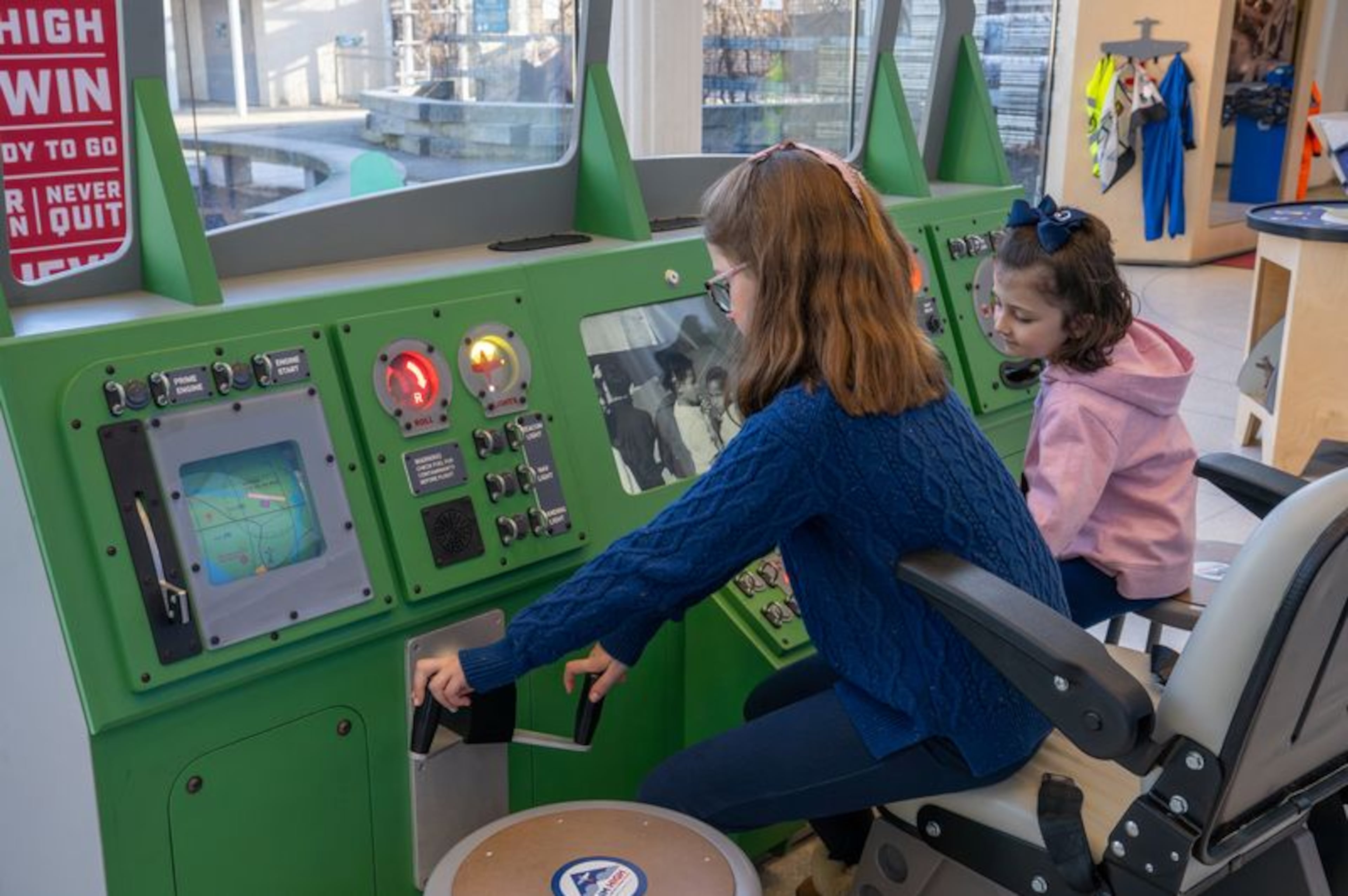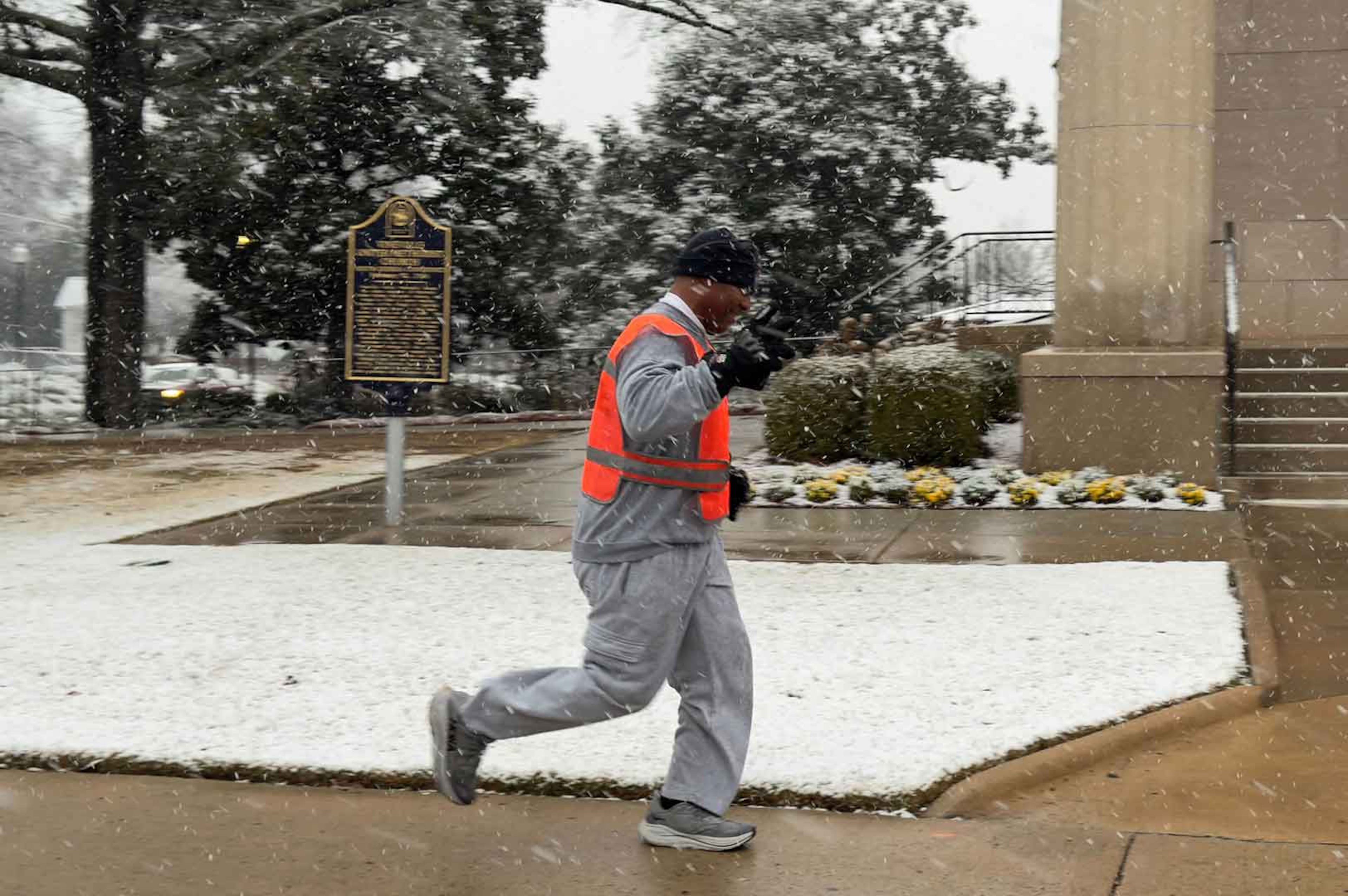Atlanta Pride: Pageantry, celebration and protest in the heart of Midtown
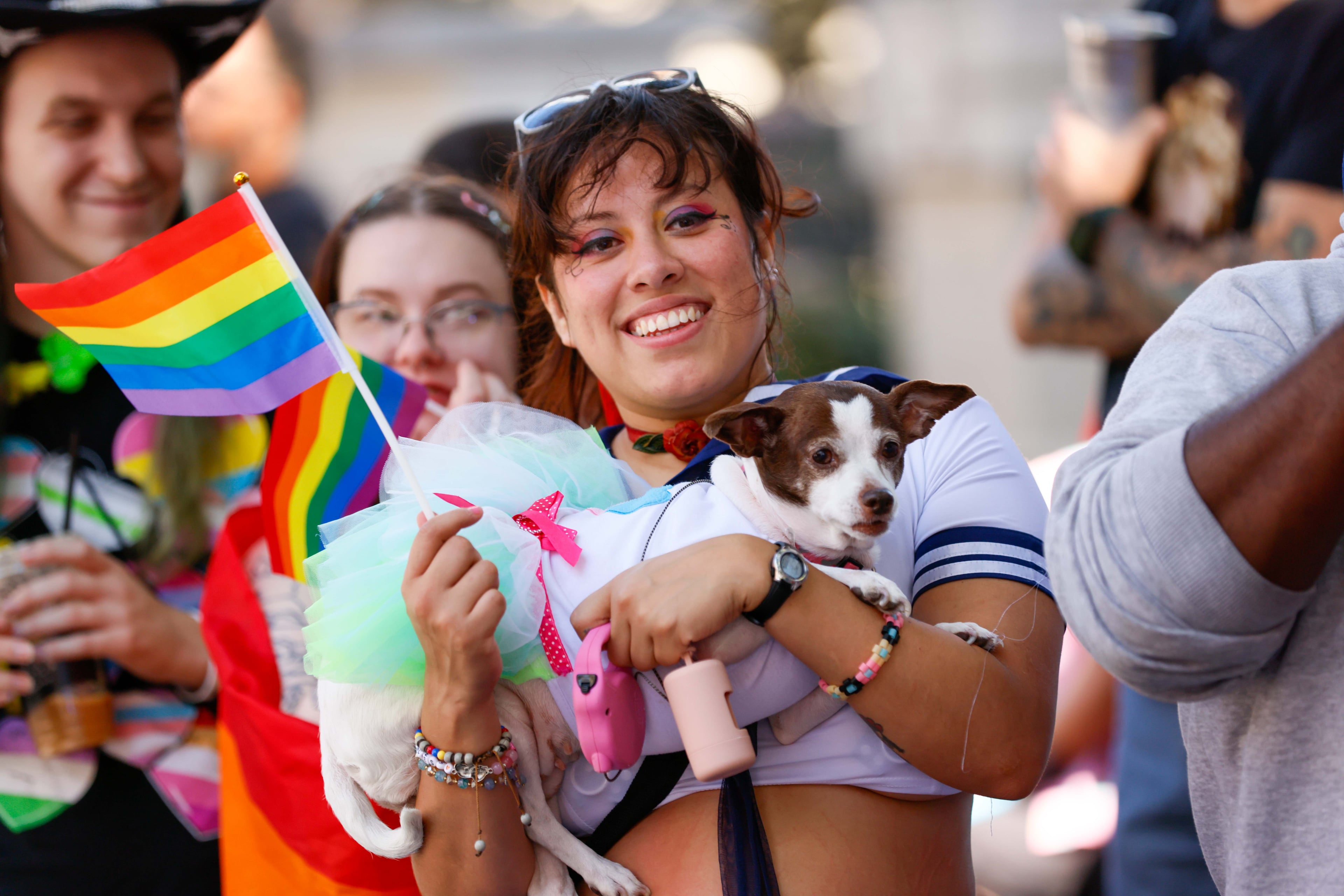











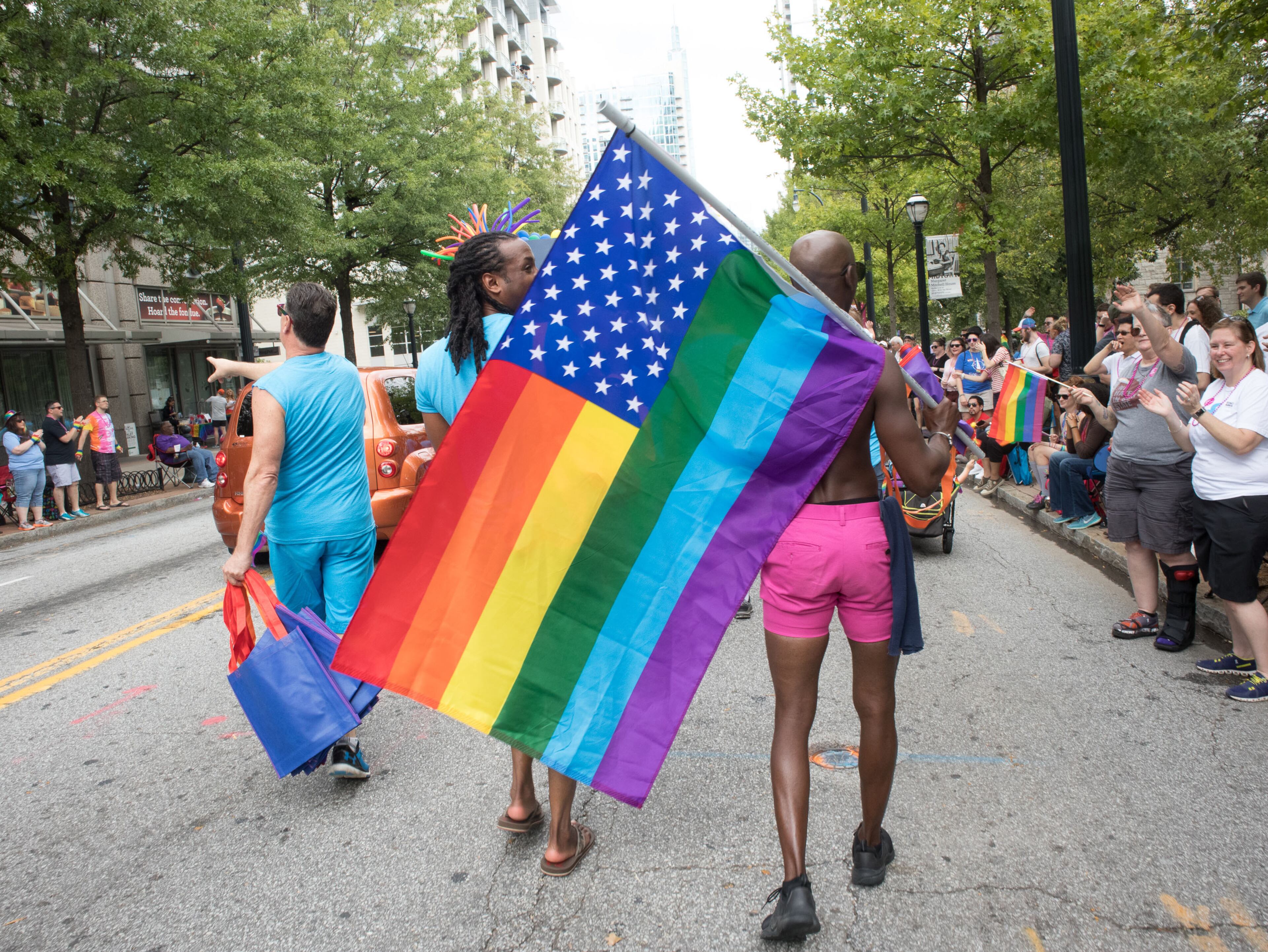




























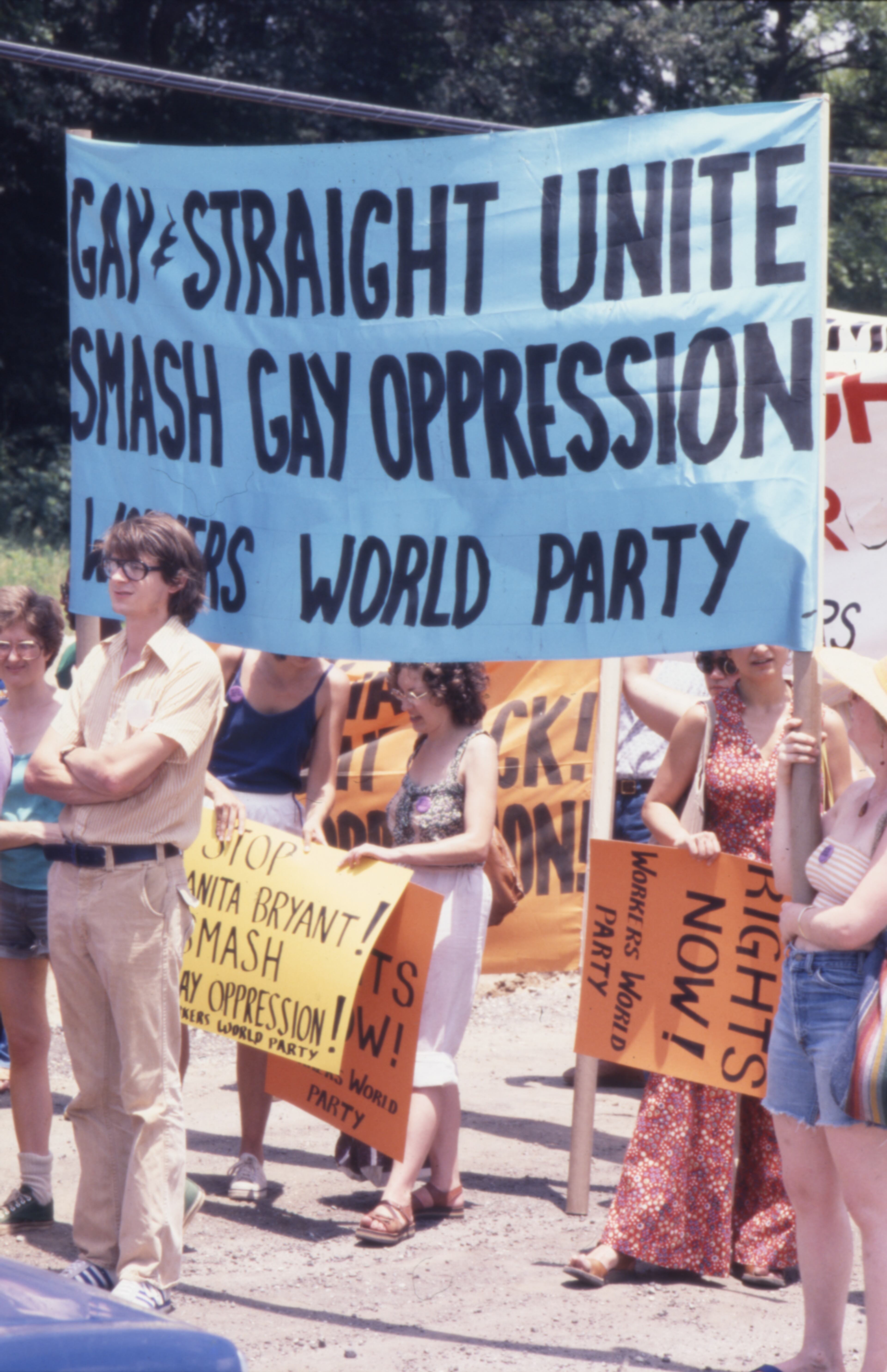


Jere Chang, an Atlanta teacher, TikTok creator and one of this year’s Pride Parade grand marshals, says she will never forget attending her first Pride event.
“It was the first time I felt as if I could genuinely and authentically be myself,” she says. To be serving as grand marshal years later, “at a time when LGBTQ+ visibility is being challenged, is incredibly emotional for me. It feels like coming full circle. It’s proof to every scared kid watching from the sidelines that there is a future where you are not just accepted, but celebrated. It’s a reminder that joy itself can be an act of resistance.”
That spirit of joy as resistance has always been at the heart of Atlanta Pride. The event started as a small, defiant gathering of activists in 1970, partly as a response to a police raid of a screening of Andy Warhol’s “Lonesome Cowboys” at an Ansley Mall cinema. Five and a half decades later, Atlanta Pride, unfolding Friday through Sunday, bills itself as the largest annual LGBTQ+ festival in the South and the largest parade in Atlanta.
“Atlanta Pride has always been grassroots, rooted in resistance,” says Steven Igarashi, the nonprofit’s director of communications and community engagement.
For Atlantans of many backgrounds, Pride is more than just another weekend festival. It is the city’s largest parade and one of the country’s most significant LGBTQ+ gatherings, drawing more than 100,000 people each year.
For one weekend every October, Midtown becomes the epicenter of queer Southern life — a mix of protest, pageantry and family reunion that reflects the city itself: steeped in history, shaped by struggle and always pushing toward something more inclusive.

While Pride typically is observed in June, Atlanta prefers a more temperate October celebration; this means revelers from other large metro areas can visit Atlanta in addition to going to New York or San Francisco Pride.
Atlanta’s Pride is uniquely Southern and distinctly global. It carries the legacy of a city that birthed civil rights icons including the Rev. Martin Luther King Jr. and continues to influence politics, music and culture worldwide. It also reflects Atlanta’s status as home to one of the nation’s largest LGBTQ+ populations, something that has been true for decades.
With its marches, rallies, performances and cabarets, the festival is a reminder that queer life here is not peripheral but central to the story of Atlanta.
For its 55th anniversary, Pride organizers chose the theme Rooted in Resistance. It’s both a milestone and a call to action: a celebration of how far the community has come and a recognition that the work of visibility, equality and inclusion continues.
Must-see events
Kickoff party at Georgia Aquarium
Friday, 7-11 p.m.: The Western Hemisphere’s largest aquarium turns into an underwater dance floor with four DJs — including Shane Marcus (New York) and Kevin DuRard (Atlanta)— spinning amid dazzling aquatic backdrops. Tickets, $56, required via georgiaaquarium.org.
Trans march & rally
Saturday, 1:15 p.m. rally, 1:45 p.m. step-off (Charles Allen Gate): A powerful, community-led march honoring and demanding visibility for transgender and nonbinary people.
Dyke march
Saturday, 4:30 p.m. assembly and rally, 5 p.m. step-off (Charles Allen Gate): The Dyke March is one of Atlanta Pride’s most enduring traditions, dating to the early 1990s. It is a community-driven march dedicated to the empowerment of women, femmes and their allies, with a focus on visibility and solidarity for women-loving women, including transgender and nonbinary participants. The march is led by Atlanta’s Dykes on Bikes motorcycle group.
For those unfamiliar with the term, “dyke” was historically used as a slur against lesbians and queer women. Over time, however, many in the LGBTQ+ community have reclaimed it as a word of strength, solidarity and pride.

Atlanta Pride Parade
Sunday, noon, travels down Peachtree and 10th Street, ending at Piedmont Park’s Charles Allen Gate: The weekend’s centerpiece, the Atlanta Pride Parade transforms Midtown into a spectacle of sound and color. Floats brim with glitter, sequins and streamers; dancers in fantastical costumes move alongside marching bands; and rainbow flags ripple above the crowds.
Yes, there’s a playful edge — expect to see some revealing outfits and cheeky sexuality — but Atlanta’s Pride parade is generally more family-friendly than, say, at some West Coast Pride events.
Kids often line the sidewalks, excitedly scooping up candy, beads and promotional items tossed into the crowd. Parents wave as their children high-five cheerleaders or mascots in rainbow gear.
The parade also showcases Atlanta’s corporate and civic embrace of LGBTQ+ life. This year’s parade presenter, Delta Air Lines, for example, once led the event with dancing flight attendants, while banks, universities, nonprofits and small businesses send contingents of employees to march in solidarity. These corporate pledges stand side by side with grassroots activist groups, faith congregations and community organizations, a uniquely Atlanta mix of protest and pageantry.
By the time the parade reaches Piedmont Park, Midtown feels transformed into a vibrant stage for inclusion.
Starlight Cabaret
Sunday, 7:15-9:15 p.m. (Coca-Cola Stage)
The Atlanta Pride Festival ends the way only Atlanta could — with the Starlight Cabaret, billed as the nation’s largest outdoor drag show. More than 20 top drag performers take the Coca-Cola Stage in Piedmont Park, entertaining an audience of thousands with sequins, wigs and choreography under the night sky.
Expect to see top performers pulling out every trick: elaborate costumes, powerhouse lip-synchs, comedy numbers and big production routines designed to bring down the house.
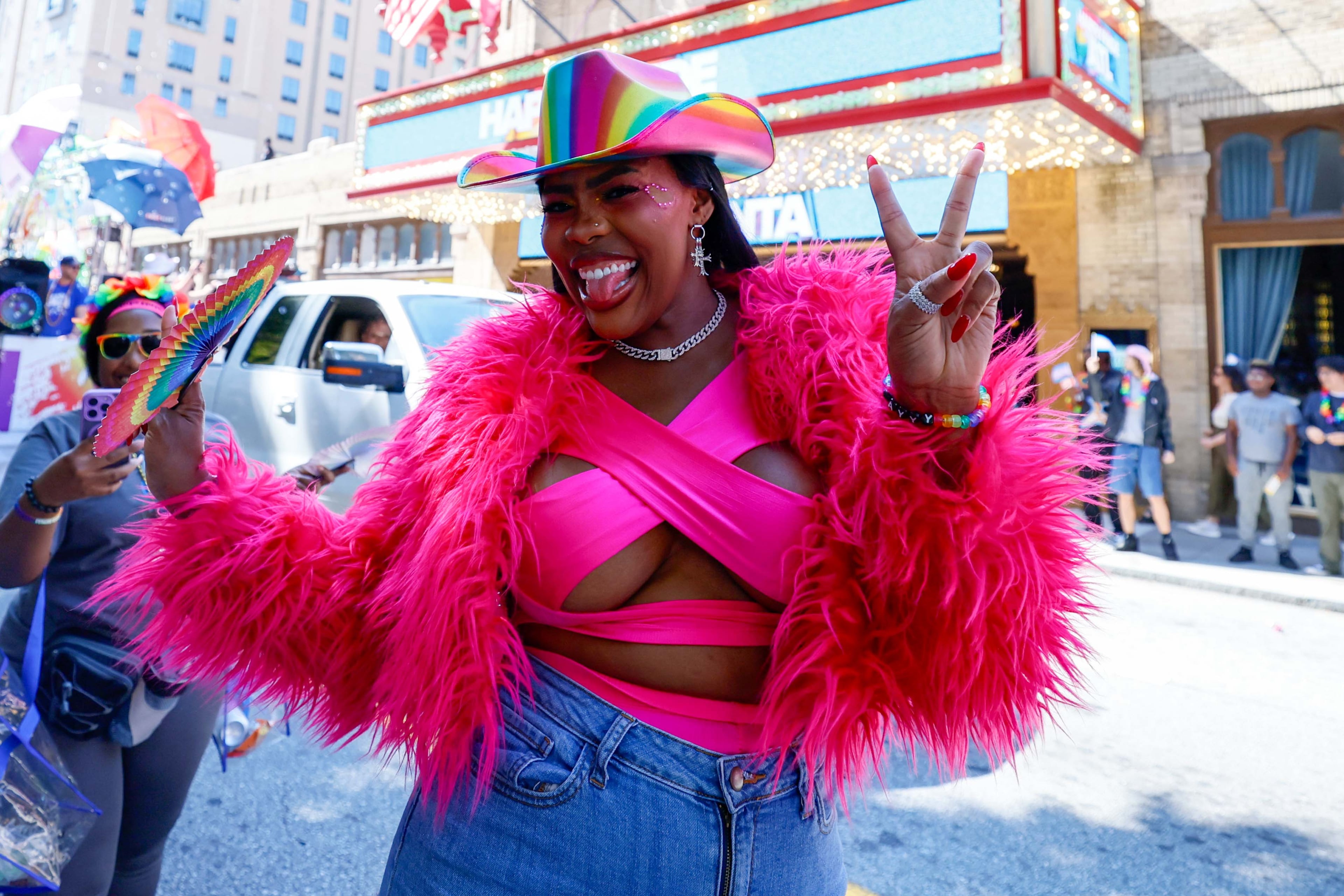
The energy is electric. Crowds spill across the Piedmont Park lawn, cheering, waving fans and singing along. It feels less like a show and more like a communal rite of passage.
Family and community highlights
In Piedmont Park:
Family fun zone (11 a.m.–5 p.m. Saturday, 1-5 p.m. Sunday, Picnic Pavilion): crafts, games and Drag Story Hour.
Teen lounge (3-5 p.m. Saturday, Greystone Patio): safe space for ages 11-17.
AIDS Memorial Quilt (11 a.m.–4 p.m. Saturday, Oak Hill): Georgia-specific panels on display.
LGBTQ+ history display (11 a.m.-8 p.m. Saturday; 3-8 p.m. Sunday, Visitor Center): archival treasures from Georgia State University Library Special Collections.
Protest meets pageantry
Counter-protesters during the parade will again be contained in a free speech zone, but marchers usually respond with cheers, songs and joy.
“There’s something radical about joy moving forward in the face of hostility,” says Atlanta Pride spokesman Igarashi.
Everything else at Pride
The parade through Midtown to Piedmont Park may grab the headlines, but much of the Atlanta Pride experience unfolds inside the park, where the festival takes over the lawns and walkways all weekend.
Pride turns up the volume this year with hip-hop sensation Flo Milli and art-pop visionary Perfume Genius headlining the weekend in Piedmont Park. They will be joined by Bob the Drag Queen, 2AM Ricky, Bentley Robles and Adeem the Artist, creating a soundtrack that blends protest, joy and Southern flair.
Rows of vendors line the park’s paths, offering everything from rainbow dog (and human) harnesses and handmade candles to the ever-popular booth of cheap but high-fashion sunglasses.
Food vendors keep things fueled with the familiar tastes of a summer festival — lemonade, gyros, funnel cakes and food truck favorites. The scent of grilled street food mixes with the beat of music, since stages set up across the park host live performances and DJ sets all day.
For something unexpected, don’t miss the classic car and motorcycle show, where antique and specialty vehicles gleam under the October sun. It’s a reminder that, beyond costumes and floats, Pride is also about community subcultures gathering and showing off what they love.
Many Atlantans treat Pride weekend like a homecoming. Groups of friends stake out spots with pop-up tents, chairs and coolers, turning Pride into something that feels a lot like a tailgate.
Few other Pride events in the country have a backdrop like Piedmont Park — a sprawling green space in the heart of the city where celebration, protest and pageantry can spill out under the open sky.
That uniquely Atlanta mix of big-city spectacle and laid-back Southern hospitality is what makes Atlanta Pride unlike anywhere else.
Correction
This story has been updated to correct Jere Chang’s pronouns.
If you go
Atlanta Pride
Friday through Sunday in Piedmont Park and various Midtown and downtown Atlanta locations. atlantapride.org
